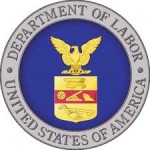If you ask any investor: “Which federal agency is supposed to be looking out for your best interests?” the most common answer would be the SEC.
That is the wrong answer. The correct one is the U.S. Department of Labor (DOL), which will enact new regulations in July that will finally give individual investors some leverage over the mutual fund companies and others which administer their 401(k) plans.

Given the reality that 401(k) plans have effectively replaced traditional pension plans, the DOL has acted to protect participants’ interests by addressing the destructive effects that excessive mutual fund fees and expenses have on participants’ net returns,
The DOL has accomplished an extraordinary feat by pushing through new fee and expense disclosure regulations affecting the $4.5 trillion 401(k) market. Since 401(k) s have become the default retirement financing vehicles for Americans, disclosing fund fees, conflicts-of-interest, and expenses. and under-the-table revenue sharing deals will make investors better informed and hopefully improve their investment’s total return.
That’s because higher fees directly impact a fund’s net return. Lower expenses translate into a higher return. Over time, lower mutual fund fees can mean up to a million dollars.
For example, if one fund charges 1.2% in annual expenses compared to another which charges 2.4%, over 20 years the amount lost to this fee difference totals more than $1.1 million. That is $1.1 million more in the average investor’s pocket. Without the DOL’s new fee disclosure regulations, that $1.1 million would go to a portfolio manager and their mutual fund company, which would not be providing any additional services for that huge amount.
How Fee Disclosures Benefit Investors
The DOL’s publicly stated goal in implementing the new regulations (specifically 404(a)(5)), is to reduce fees and expenses paid by plan participants by an astounding $14.9 billion.
The DOL also estimates that it will cost plan and 401(k) services providers about $2 billion to comply with the new regulations. As part of this unprecedented level of disclosure, the retirement plan industry is expected to suffer an estimated $16.9 billion in lost revenues and added expenses.
However, while it is customary for the financial services industry and some of their Congressional supporters to demand a financial impact study of any new regulations on the industry, no one ever asks for a financial impact study to be conducted on behalf of the public, in this case, the millions of people who invest in 401(k) and trust their employers to act in their best interests.
The financial impact of excessive fees, revenue sharing and the myriad of cash flows, fees and tribute money that goes from investor accounts through the 401(k) plan and back to the industry is incalculable, but my bet is that it easily dwarfs the $2 billion it will cost the financial services industry to comply with these long overdue regulations. The other embarrassing question is how much the mutual fund industry made over the past 25 years by not disclosing fees to both their plan sponsor clients and their own fund shareholders?
How to Buy Influence in Washington D.C.
Just to keep this estimated $2 billion compliance cost in perspective, let’s look at what the financial services industry spends on lobbying and campaign contributions to influence elected officials. From 1998 to 2008, the financial services industry spent $1.7 billion on campaign contributions and $3.4 billion on lobbying expenses. The securities industry alone spent $500 million on campaign contributions and $600 million on lobbying.
To put this in perspective, when these campaign contributions are compared to other industries during the period starting in 1989, contributions from the financial services industry alone are greater than the contributions from the energy, health care, defense and telecommunications industries combined. (Source: Republic, Lost: How Money Corrupts Congress—and a Plan to Stop It, Lawrence Lessig, Twelve, p 83.)
This is an extraordinary amount. Accordingly, anyone with common political sense would ask why the financial services industry would go to such great lengths to lobby elected officials and delay all types of financial reform and regulation, to any extent and whether it would benefit all types of customers who use the financial markets, if the expected revenues from the status quo were not worth defending?
Needless to say, the rewards are huge and help explain what drives the top 1%. Given this backdrop, it is also extraordinary that the DOL managed to navigate the financial services industry’s lethal lobbying minefield to get these regulations passed at all.
But by defying serious career-killing odds, the people at the DOL have done millions of investing Americans and their children a tremendous, incalculable benefit. They have accomplished something the SEC would never even have attempted, even though they are commonly (and mistakenly) considered acting in the tepid interests of individual investors.
The DOL’s new fee disclosure regulations deserve national recognition from investors and investor groups nationwide. In this controversial election year, with its false claims that deregulation is the answer to all problems, investors have to recognize that these disclosures, when properly applied in workplace 401(k) s, will put real dollars back into their retirement and savings accounts. This would never have happened in a de-regulated world.
This is an excerpt from the upcoming book, Wealth Destruction in America, to be published summer 2012.










